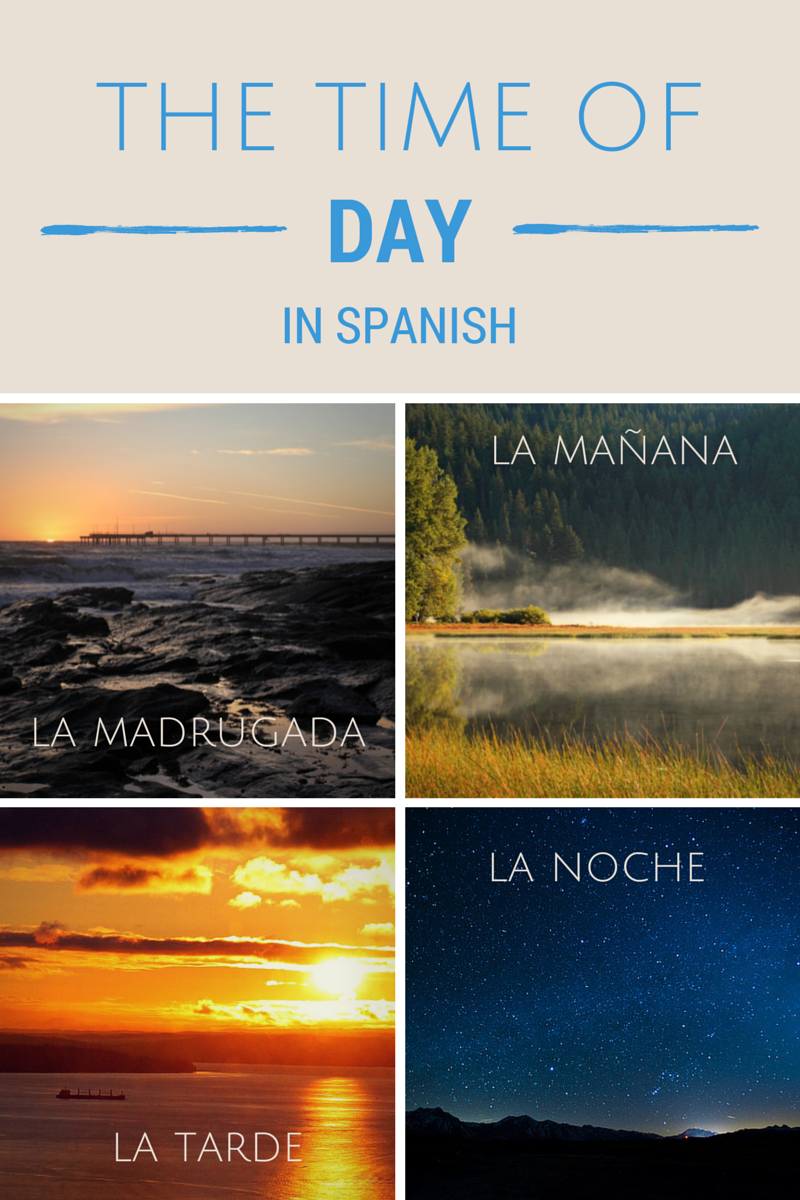Tips 065: How to Tell The Time In Spanish, Time Based Greetings and The Merits of an Early Start
Description
Knowing how ask and tell the time in Spanish should be in every student’s repertoire.
I would also label ‘telling the time’ as essential Spanish vocabulary for travel. If you are making bookings or confirming departure times you want to not only make sure you have the correct time but the time of day.
In today’s podcast we cover the basics of asking and telling the time. As well as some of the more complicated ideas relating to time such as greetings.
I couldn’t count the number of times I have made a mistake with “buenas noches” when it was still “tarde” and “buenos días” when it was already “tarde”.
Also, as it relates to time, we debate the merits of being a morning person or a night person.
Check out today’s podcast, have a listen for whether Maria considers herself a morning person or an evening person. And listen for my thoughts on an old saying about the importance of rising early.
If you are having trouble understanding Spanish section of the podcast or if you would like to get more out of the podcast and take your Spanish to next level you can get access to the Spanish podcast transcripts and english translations here.
Other podcast episodes mentioned in today’s tip:
Examples from the episode:
A few examples in Catalan:
- Hi – Hola.
- What’s up? – Què tal?
- How are you? – Com estàs?
- Can I help you? – Et puc ajudar?
- Goodbye (adios) – Adéu.
- Thankyou – Gràcies / Merci.
Back to Spanish examples:
Do you speak Castilian(The Spanish from Spain)? – ¿Hablas Castellano?
Are you a sleepyhead or morning person – Eres dormilona o madrugadora?
Sleepyhead – Dormilón / Dormilona.
Early riser / morning person – Madrugador / Madrugadora.
What time do you get up? – ¿A qué hora te levantas?
God helps those who get up early (The early bird gets the worm) – A quien madruga dios le ayuda.
Telling the time:
What is the time? – ¿Qué hora es?
What is the time exactly? – ¿Qué hora es exactamente?
It’s one o’clock – Es la una en punto.
It’s one – Es la una.
It would probably be one o’clock – Será la una.
It would be more or less one o’clock – Será la una, más o menos.
It is two o’clock – Son las dos.
It would probably be two o’clock – Serán las dos.
It is half past four – Son las cuatro y media.
It is six thirty seven – Son las seis y treinta y siete.
During the early-morning – Por la madrugada. (non specific time).
During the early-morning – De la madrugada. (specific time).
During the morning – Por la mañana. (non specific time).
During the morning – De la mañana (specific time).
During the afternoon – Por la tarde (non specific time).
During the afternoon – De la tarde (specific time).
During the evening – Por la noche (non specific time).
During the evening – De la noche (specific time).
I don’t like getting up during the early morning – No me gusta levantarme por la madrugada.
Normally I go to bed after ten o’clock at night – Normalmente me acuesto a las diez de la noche.
Marmota – Marmo.
You sleep more than a groundhog (large squirrel) – Duermes más que una marmota.
Can you now tell the time in Spanish? Will you be able to avoid the mistakes I make with the time of day?

The post Tips 065: How to Tell The Time In Spanish, Time Based Greetings and The Merits of an Early Start appeared first on Real Fast Spanish.





